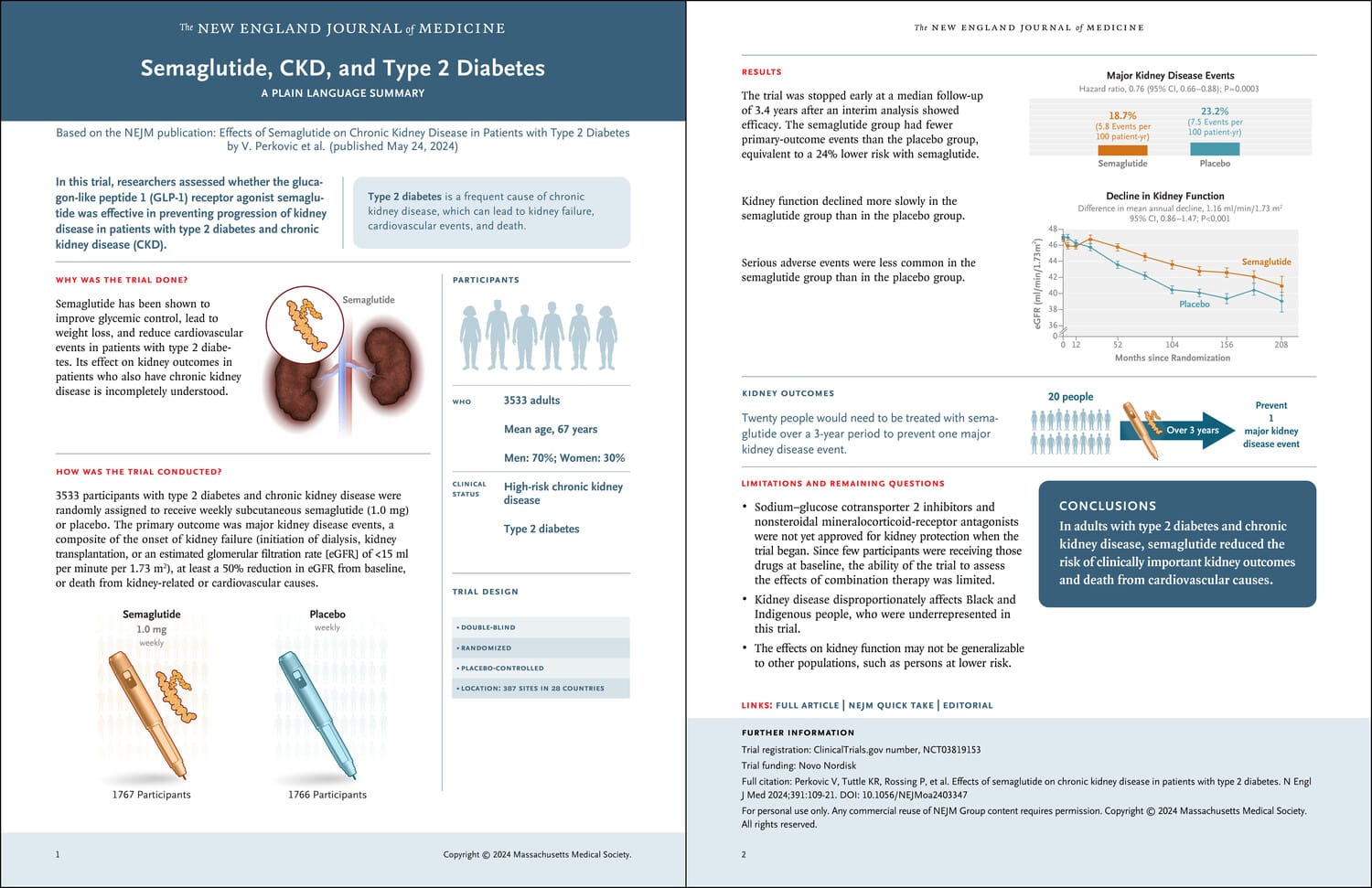24% Less kidney disease risk with Semaglutide (Ozempic)
Can we trust research funded by Novo Nordisk which found a 24% decrease in kidney disease risk for people on Semaglutide (Ozempic)?
Earlier this year Novo Nordisk put out a press release that didn't get enough coverage – they funded a kidney health trial called FLOW, which went astoundingly well. In fact so well that it was stopped early:

Novo Nordisk posted a press release as you'd expect:


Who participated?
The participants were somewhat older – an average age of 66.
3,534 people participated in the study, which is quite a large study relatively.
What were the results of the trial
The trial went incredibly well - participants saw an average drop hin HbA1c of 7.8%.
Given that most GLP1 Receptor Agonists are billed exactly as type 2 diabetes drugs, this is a welcome and expected result – a confirmation that they're working as intended.
The real surprise here is the effects on kidney function.
24% of people treated with Semaglutide (1.0mg) saw a reduction in kidney disease progression compared to placebo1.
In addition to the expected effects on type 2 diabetes related measurements, this is a huge result for those struggling with kidney issues as well.
There's a label expansion in the works, as kidney disease is a common co-morbidity:
“Approximately 40% of people with type 2 diabetes have chronic kidney disease, so the positive results from FLOW demonstrate the potential for semaglutide to become the first GLP-1 treatment option for people living with type 2 diabetes and chronic kidney disease.”
- Martin Holst Lange (Executive VP for Development at Novo Nordisk)
What does this mean for adoption of Semaglutide (Ozempic, Wegovy, etc)?
Clearly, Semaglutide has an outsized positive effect, and particularly in those who are older and could lose some pounds to help with aging.
It looks like we're going to have the benefit of older generations being around longer, and being relative healthier (assuming fears of bone density loss and related management don't pan out).
More and more people are purchasing and using GLP1 Receptor Agonists, and that trend is unlikely to stop anytime soon – and while a generic Semaglutide is very far away, other generics like the Victoza may help with affordability in the meantime:







